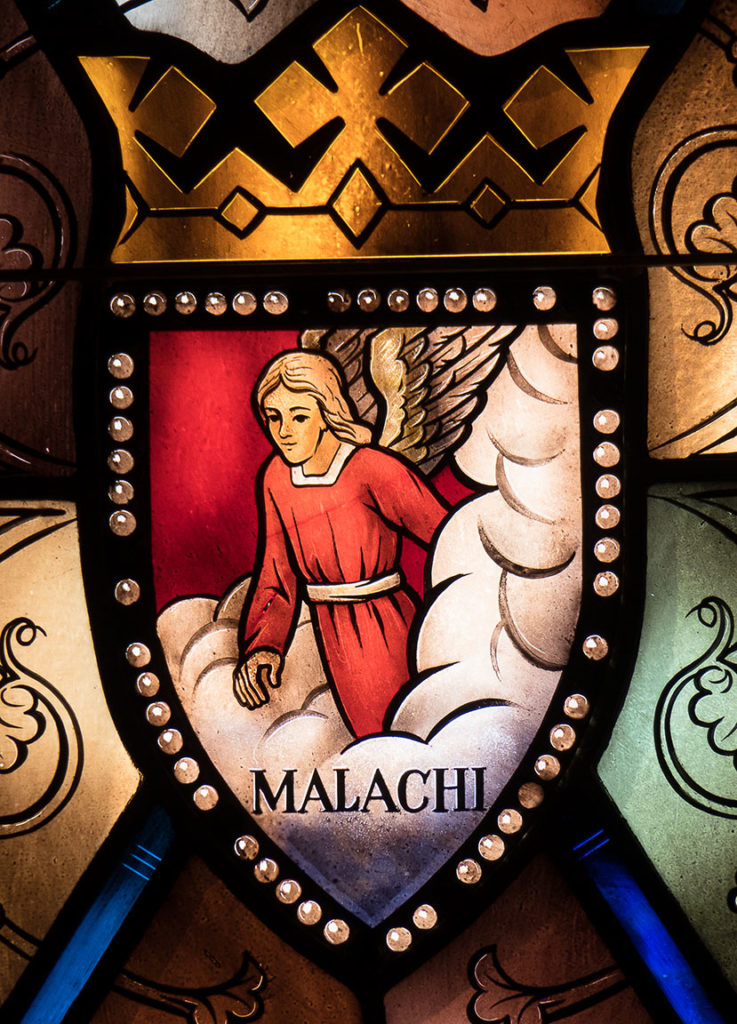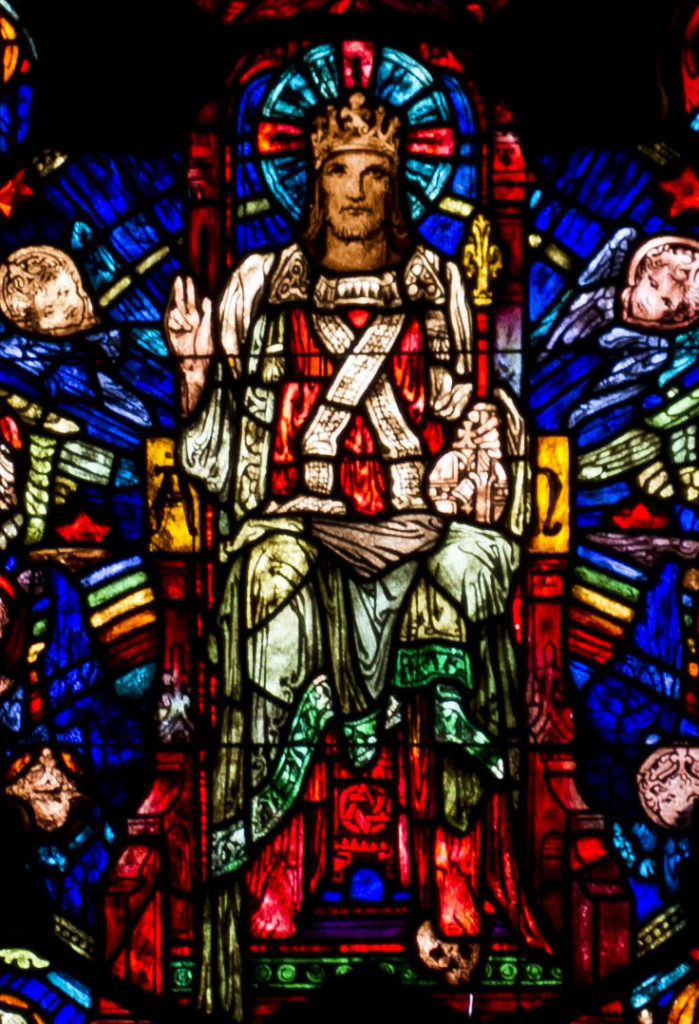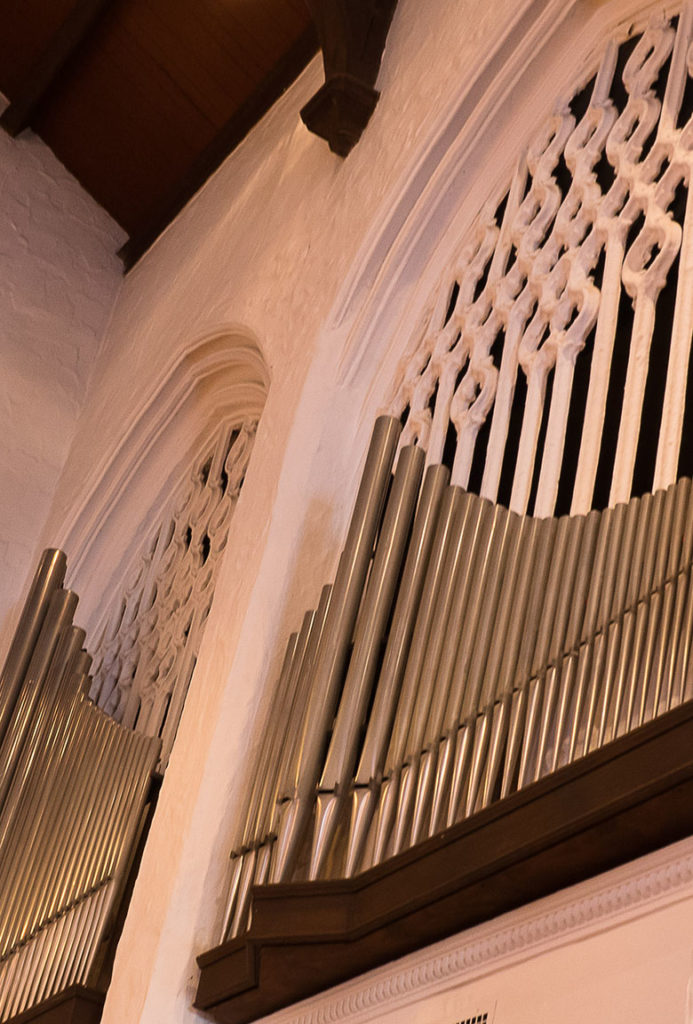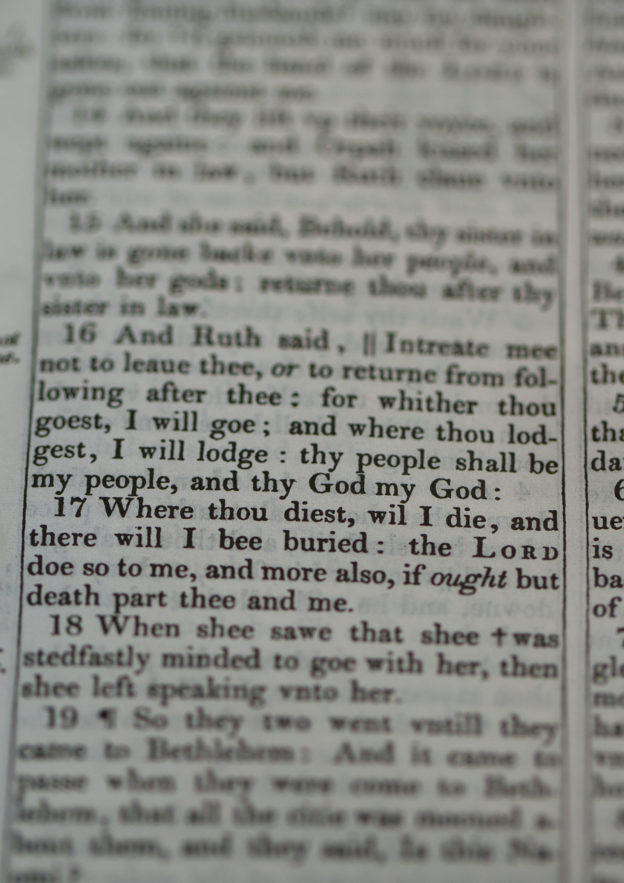
My three year old daughter loves to watch Sesame Street. One of her favorite monsters is Elmo. You know the little guy; big eyes, bright red hair, high-pitched voice. One thing about parenting is this, whatever your child watches, you watch. So I get caught watching a little red monster with my daughter. Elmo has a segment called “Elmo’s World”. It’s a whole thing built around his imagination. Within Elmo’s World there is a real goldfish inside a fishbowl. Her name is Dorothy. Elmo talks to Dorothy. Although we can’t hear Dorothy, Elmo seems to understand exactly what this gold fish is saying. You’ll hear Elmo say, “What’s that Dorothy?” and he will tell my daughter and me what Dorothy is saying. As I watched Elmo with my daughter something occurred to me. The conversation between a red monster and a gold fish can be found in the church too. I don’t mean the actually creatures. I mean the technique Elmo employs to hear what his gold fish says.
Have you ever heard this phrase, “God put it on my heart…”? I’d be shocked if Christians have not heard other Christians use this phrase. It’s used in books by guys like Steven Furtik[1], from churches like NewSpring[2] and by Christians wanting to start a biker church[3]. Search Google with that phrase. The number of pages is virtually unending. It comes in other forms as well. People also say things like, “I was led by God to…” fill in the blank. Break it down and this is what is being said, “The future is unknown. Even so, I have a certain feeling/emotion about that future. I believe the emotion I feel is God communicating directly to me. I trust that this feeling will lead to a good outcome if I act on it.” This is integrally connected to the way many churches and Christians operate today. They look internally (i.e. emotionally) for God and His Word, His voice. On the flip-side, not feeling moved for Jesus is a cardinal sin for many American Christians.
This actually changes how God’s Word functions. Along these lines the Word isn’t the guide, it needs one. So we guide the Word to fit what we feel God is saying. Step out in faith like Peter. Don’t doubt like Thomas. Be courageous like Paul. Slay those big Goliaths in your life like David. The Word is meant to move in the direction from external to internal. In this case, though, we’ve twisted to move from internal to external. It takes the firm foundation and turns it into silly putty. What is that end? We end up like a little red monster talking to his fish.
Saying “God put it on my heart” means you become a prophet for God. “Thus saith the Lord” is no different. It means you become a prophetic mediator between God and your neighbor in this instance. By your feelings, you bridge the gap between the hidden will of God and the world. The problem is this, just as Elmo explains something that is basically made up, we do the very same when we say, “God put it on my heart”. Our heart becomes the goldfish that is moving and we interpret that move as God speaking, God moving. How do you know? “I just do!” No, you really don’t. You’re making things up just like Elmo does when he speaks to his goldfish.
What if you’re wrong? What if the feeling you have is because you heard a song you like or ate a bad burrito? Depending on the situation, it can have disastrous results. What else is the problem? Well, first we are neglecting God’s Word. “Long ago, at many times and in many ways, God spoke to our fathers by the prophets, but in these last days he has spoken to us by his Son, whom he appointed the heir of all things, through whom also he created the world.” (Hebrews 1:1-2) The Great High Prophet has come and revealed everything God wants us to know. Jesus has taught all we need to know in scripture. Where do we find it today? Not in our heart. It’s in the Word outside of your heart. This means that where the Bible speaks, so do we. It also means that where the Bible doesn’t speak, neither do we. So if we say “God put it on my heart” you’d better be able to back it up with a Bible verse in its context. I guarantee you won’t find a verse in the bible that tells you to quit your job to start a church or leave your current wife for another one or to choose one college over another. It’s not there. Stop acting like a better prophet than Jesus. Stop talking to goldfish.

The Christian life, Christian preaching, the point of God’s Word is about sinners who are witnesses of the crucifixion and resurrection of God’s own Son. It’s not finding God in our feelings, in our fish bowls, in the minutia of the day. It’s not in the tea leaves of my emotions. It’s about God’s external Word that kills you, buries you in Jesus’ tomb, and carries you along in His resurrection. It’s not about you. It’s about Jesus FOR you. It’s about what God has already said in His Word that all points to Jesus (John 5:39).
So what about those unknown things you feel God is calling you to do? Well, first speak with your family. Check your budget. Don’t be foolish. If there are multiple ways to go, listen to Yogi Berra, “When you come to a fork in the road, take it.” Your decisions will be tainted with sin because you are a sinner (Isaiah 64:6; 1 John 1:8). Despite you, God is bigger. God will do what needs to be done. By grace, sometimes He might even use you to do it. Stop looking for God’s will in goldfish. Speak what God says and accept the fact that God will use you wherever you are to accomplish His will, that is, to forgive sinners through Jesus Christ.
Rev. Jaime Nava
[1] (p. 57. Furtik, Steven. Sun Stand Still. 2010)
[2] See https://www.facebook.com/notes/newspring-church/no-encounter-is-too-brief-to-be-filled-with-the-hope-of-christ/178167017121
[3] http://www.marshallnewsmessenger.com/news/2015/apr/04/revved-up-for-religion/












